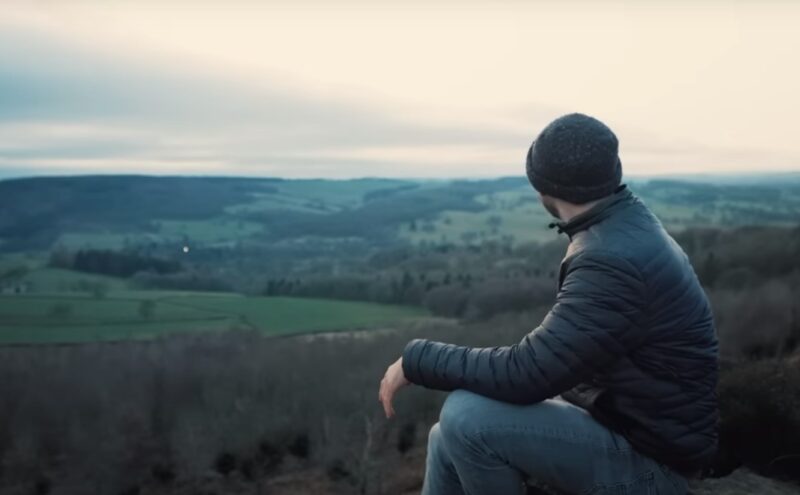In an era dominated by screens, the phrase “touch grass” has emerged as a playful yet poignant reminder of the importance of disconnecting from our digital lives to reconnect with the physical world around us.
Originally coined as internet slang, it serves as advice to step away from the virtual and engage with the tangible, especially for those whose professions tether them to their devices. For screenwriters, whose craft demands hours upon hours in front of a computer, this suggestion carries a special significance.
Key Takeaways:
The Importance of Disconnecting

For screenwriters, the screen is both a canvas and a cage. The digital world offers infinite resources for research, inspiration, and networking, yet it also poses the risk of burnout, isolation, and a disconnection from the sensory experiences that enrich our lives.
Disconnecting, or stepping away from the screen, is crucial for screenwriters not just as a respite for the eyes, but as a necessary break for the mind.
Engaging too long in the digital realm can lead to a tunnel vision of creativity, where ideas circulate in a vacuum, disconnected from the real-world stimuli that feed the human experience. The benefits of touching grass for screenwriters are practically endless, but the commonest ones are:
| Benefit | Description |
|---|---|
| Enhanced Creativity | Stepping away from the screen and engaging with the natural world can spark new ideas and perspectives, enriching the creative process. |
| Stress Reduction | Natural environments have a calming effect, helping to lower stress levels and improve overall mental well-being. |
| Improved Focus | Time spent in nature can enhance cognitive functions, including focus and attention, making screenwriters more productive when they return to their work. |
| Physical Health | Engaging in outdoor activities promotes physical health, which is closely linked to mental and emotional well-being. |
| Emotional Replenishment | The tranquility of nature can serve as an emotional balm, helping screenwriters to recharge and tackle their projects with renewed vigor. |
| Broadened Perspectives | Real-world experiences enrich a writer’s understanding of human behavior and relationships, leading to more nuanced and authentic storytelling. |
| Inspiration from Nature | The unpredictability and beauty of the natural world can inspire plot points, settings, and characters, adding depth and authenticity to screenplays. |
| Prevention of Burnout | Regular breaks from the digital grind can prevent the creative and mental exhaustion that leads to burnout, ensuring longevity in the screenwriting profession. |
Reconnecting with the Physical World

Reconnecting with the physical world opens a treasure trove of sensory experiences and real-life observations that are invaluable to screenwriters. Nature, with its unscripted dramas and constant-changing landscapes, offers a wealth of inspiration that can breathe life into screenplays.
The sights, sounds, smells, even silence, of the outdoors can stimulate new ideas, provide fresh perspectives, and infuse stories with authenticity and depth. Beyond nature’s inspiration, the act of physically engaging with the world encourages screenwriters to observe human behavior, dynamics, and emotions in their natural settings.
These observations can translate into more nuanced characters, realistic dialogues, and relatable plots. The physical world is rich with stories waiting to be told, and by stepping away from the screen, screenwriters can tap into this vast reservoir of creativity.
Enhancing Creativity Through Sensory Experiences

Sensory experiences in nature not only rejuvenate the mind but also enhance creativity by engaging all five senses in a way that screen-based research cannot. The rustle of leaves, the warmth of the sun, the texture of grass—these experiences can inspire descriptive writing that resonates with readers and viewers on a visceral level.
Nature’s inherent unpredictability can also spark creative problem-solving and innovative thinking, essential skills for any screenwriter facing plot challenges or character development hurdles. Moreover, sensory experiences in nature can help screenwriters create more immersive worlds in their scripts.
By drawing on the vivid details of their outdoor experiences, they can craft scenes that captivate audiences, making them feel as though they are part of the story. This level of detail and immersion can be the difference between a good screenplay and a great one. Even giving a name to your story requires creativity, don’t take it for granted.
Physical Activity and Mental Health
The benefits of physical activity for mental health are well-documented, and for screenwriters, whose work is predominantly sedentary, incorporating movement into their routine is essential. Physical activity, especially outdoors, can significantly reduce symptoms of anxiety and depression, improve mood, and increase energy levels.
These mental health benefits directly translate to increased productivity and creativity, enabling screenwriters to approach their work with a clearer mind and a more positive outlook. Regular physical activity also promotes better sleep, a critical component of the creative process.
A well-rested mind is more capable of innovative thinking, problem-solving, and emotional resilience—all crucial qualities for screenwriters navigating the complexities of their craft.
Practical Tips for Screenwriters

Integrating “touch grass” moments into a screenwriter’s routine can be simple and profoundly beneficial. Here are some practical tips for screenwriters looking to embrace the outdoors:
| Activity | Description |
|---|---|
| Daily Walks | Commit to taking a daily walk, whether it’s a stroll through a local park or a hike in the wilderness. Use this time to clear your mind, find inspiration, or work through plot points. |
| Outdoor Writing Sessions | Whenever possible, take your writing outdoors. Parks, gardens, and even backyards can serve as refreshing settings for writing. |
| Mindfulness in Nature | Practice mindfulness or meditation in natural settings to enhance focus and reduce stress. Even a few minutes can have a significant impact. |
| Nature Breaks | Schedule regular short breaks during writing sessions to step outside, breathe fresh air, and stretch. These brief pauses can boost concentration and creativity. |
| Physical Activity | Find an outdoor activity you enjoy, such as cycling, swimming, or yoga, and make it a regular part of your routine. The physical and mental health benefits will support your writing process. |
FAQs
Is screenwriting harder than writing?
Screenwriting and other forms of writing each have their unique challenges. Screenwriting is specialized, requiring the ability to convey stories primarily through dialogue and visual elements within a structured format. It’s not necessarily harder but different, focusing on storytelling that fits the medium of film or television.
How do screenwriters get noticed?
Screenwriters often get noticed by networking, entering screenwriting competitions, attending film festivals, and submitting their work to agents and production companies. Building a strong portfolio, maintaining an online presence, and sometimes working with a screenwriting agent can also significantly increase visibility in the industry.
Do screenwriters make millions?
While some successful screenwriters do make millions, especially in Hollywood, this is not the norm. Earnings can vary widely based on experience, the market for the script, and negotiation skills. Many screenwriters work on multiple projects and may also have other sources of income.
Am I too old to be a screenwriter?
Absolutely not. There is no age limit to becoming a screenwriter. The industry values good stories and unique voices, regardless of the writer’s age. Many successful screenwriters started their careers later in life, bringing a wealth of experience and perspective to their work.
The Bottom Line
The advice to “touch grass” transcends its internet slang origins, offering screenwriters a tangible way to enhance their creativity, mental well-being, and connection to the world around them.
By stepping away from the screen and engaging with the physical world, screenwriters can enrich their storytelling, find new inspiration, and maintain a healthy balance in their professional and personal lives.
